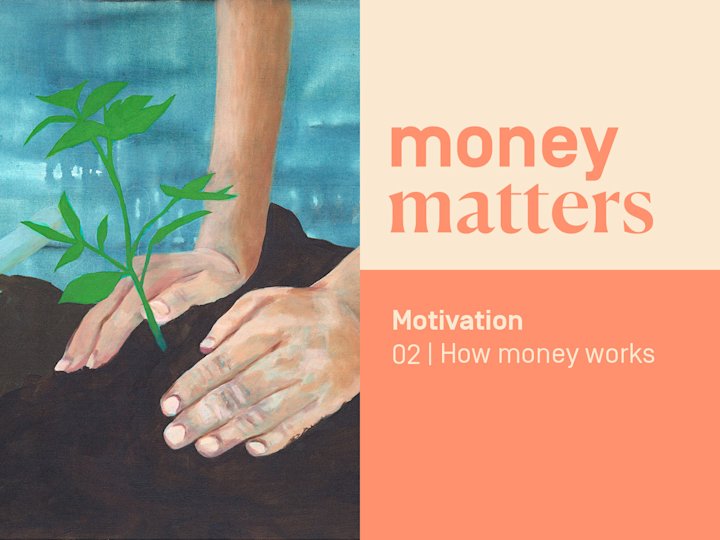Is the reason why you’re not interested in money because you just don’t think it’s a priority? Fair enough, but that’s actually a very good reason to start taking an interest.
Why should I bother about something that really doesn’t interest me? Good question. In most situations, that’s exactly what you might think: if you’re not interested, move on and think about what really does matter instead. But when it’s money we’re talking about, that’s a whole different ball game. Money is always important. Whether you like it or not.
Even if you personally don’t think money is worth striving for, it does give you options. With money, you can do things that just aren’t available to you otherwise. Like when you’re deciding what to buy, how you divide your time between your professional and private life, or even whether you can afford to quit your job if you decide you really don’t want to keep on doing it anymore… In other words, how you want to live your life.
Have you only made it in life if you have money?
Despite what we’ve just said, you don’t necessarily have to be rolling in cash to have “made it”, whatever that might mean. It’s much more a question of having the means to live your life the way you like to live it. It certainly isn’t essential, nor is it a particularly smart move, to define yourself in monetary terms – but you should take an interest in it.
You can only find out what opportunities are open to you if you make the effort to learn the basics. Don’t worry, though – it really isn’t rocket science. When it comes down to it, money is just a tool you can use for your own benefit. The most important thing is to decide how to use it and how you can make it work for you. Straightforward questions, yet the answers are anything but: it all comes down to individual preference.

Money is a political issue
Yes, money is a political issue, because it has the ability to control people’s actions, going way beyond each individual’s sphere of activity. And it can work for the good, but equally well for the bad…
If you really want to know how society works, how the world of politics and the economy interact, you need answers to the following questions: Who has money? Who receives money? Who pays taxes and how much? How are things funded and on what grounds? Only then can we attempt to answer our own personal questions about how we can and indeed must shape our lives and the lives of those around us as we move forwards. How we can all live our lives, in other words.
By understanding more about money, you have a greater understanding of the world in general.
Not bothering with money because you don’t care about it is the easy option, that’s for sure. But even if you don’t want to think about it, it doesn’t mean the world stops turning on a daily basis. And all the more reason, quite apart from your own personal interests, to understand how money works. Not only will this open your eyes to potential misunderstandings or challenges, but may well also reveal new solutions, opportunities and options.
What does my money actually do? And what about other peoples’ money? Where does it end up and why should that be? Or, for that matter, why haven’t I got more money? These are really good questions that all of us should consider. Questions that set everything in context and are well worth exploring in greater depth.
And once you’ve asked yourself all these questions, perhaps you might like to reconsider your answer to our initial query: are you sure you really don’t care about money?

